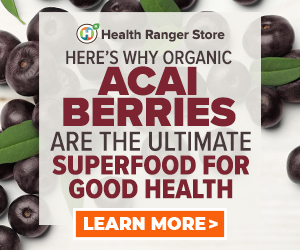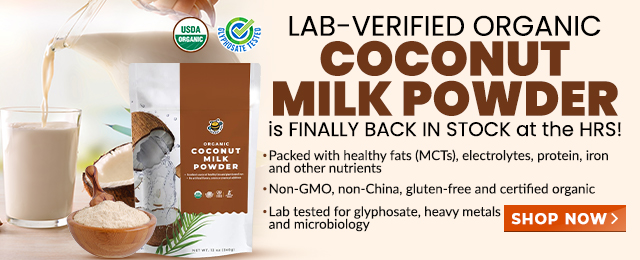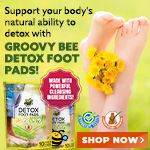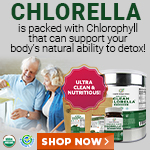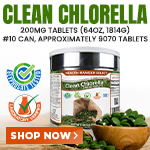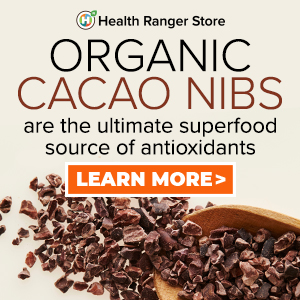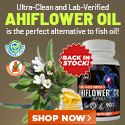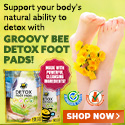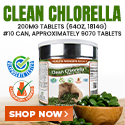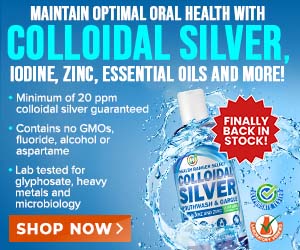
American Heart Association's Advice on Vitamin E and Antioxidants is Terrible Advice, Highly Distorted, and Prone to Actually Cause Heart Disease
 Friday, August 06, 2004 Friday, August 06, 2004by Mike Adams, the Health Ranger Editor of NaturalNews.com (See all articles...) Tags: American Heart Association, heart disease, vitamin E |
- TAKE IT DOWN Act advances in Congress amid free speech concerns
- Analysis: The coming economic collapse, a mass uprising and Trump's three secret weapons to halt the growing revolt
- Widespread social and economic unrest: Steve Quayle issues urgent financial warning of imminent asset collapse in new interview with Mike Adams
- Fauci is back in the limelight, and he’s busy promoting a future COVID or FLU pandemic
- Aerosolized bioweapons? Strange “diploid biomasses” falling out of the sky in Florida captured under the microscope
- Mike Adams releases country western hit single: Goin’ Back in Time is Comin’ Home
- Tulsi Gabbard leads charge against the Biden regime’s global censorship of the 'Disinformation Dozen'
- Kiss Your Genetic Privacy Good-Bye! 23andMe Gets Green Light to Sell Your Intimate Genetic Details to Anyone They Want
- Israeli lobbyists boast of controlling US national security policy in leaked AIPAC audio
- U.S. lawmakers investigate Meta over alleged China collaboration
- CLOT SHOT PLANDEMIC UNFOLDING: Fibrous, rubbery clots caused by covid injections have prion-like seeding activity
- Hospital staffers sound alarm after 10 nurses were diagnosed with BRAIN TUMORS
- Children’s Health Defense stands firm: Based on SCIENCE and personal experiences, the MMR vaccine is NEITHER SAFE nor EFFECTIVE
- Defunding DEADLY mRNA jabs: Government funding for mRNA technology being scrutinized and sidelined until proven "safe and effective" for real
- Sen. Ron Johnson accuses CDC official in charge of COVID-19 injections of deleting records amid Congressional GOP scrutiny
- Pfizer's RSV vaccine linked to preterm births as drug giant CONCEALED RISKS from pregnant women in unethical clinical trials
- DEATH by VACCINE or face PRISON time: Canadian Freedom Convoy leaders CONVICTED for protesting forced vaccination during the Covid Plandemic
- Shedding light on the dark side of MMR vaccines: How vaccinated individuals SPREAD MEASLES & put the vulnerable at risk
- Fauci is back in the limelight, and he’s busy promoting a future COVID or FLU pandemic
- Tulsi Gabbard leads charge against the Biden regime’s global censorship of the 'Disinformation Dozen'
- Aerosolized bioweapons? Strange “diploid biomasses” falling out of the sky in Florida captured under the microscope
- Analysis: The coming economic collapse, a mass uprising and Trump's three secret weapons to halt the growing revolt
- Kiss Your Genetic Privacy Good-Bye! 23andMe Gets Green Light to Sell Your Intimate Genetic Details to Anyone They Want
- Widespread social and economic unrest: Steve Quayle issues urgent financial warning of imminent asset collapse in new interview with Mike Adams
- U.S. lawmakers investigate Meta over alleged China collaboration
- Mike Adams releases country western hit single: Goin’ Back in Time is Comin’ Home
- Chemtrails unveiled: How the CIA and Big Business are manipulating the weather for profit
- Curcumin’s ancient healing power supercharges muscle recovery, and its effects are compounded with anti-inflammatory foods and supplements
- Tulsi Gabbard takes aim at censorship: Justice for the ‘Disinformation Dozen’
- China’s counter-tariff strategies: A new chapter in the U.S.-China trade war
- CLOT SHOT PLANDEMIC UNFOLDING: Fibrous, rubbery clots caused by covid injections have prion-like seeding activity
- Israeli lobbyists boast of controlling US national security policy in leaked AIPAC audio
- European Court of Justice: Healthcare professionals who promoted or administered COVID-19 vaccines are CRIMINALLY LIABLE for any harm caused
- Defunding DEADLY mRNA jabs: Government funding for mRNA technology being scrutinized and sidelined until proven "safe and effective" for real
- DEATH by VACCINE or face PRISON time: Canadian Freedom Convoy leaders CONVICTED for protesting forced vaccination during the Covid Plandemic
- U.S. approves new Russian ambassador as diplomatic thaw continues
- Newly released JFK files reveal Pentagon's role in creating Lyme disease and covid in the same lab
- Analysis: The coming economic collapse, a mass uprising and Trump's three secret weapons to halt the growing revolt
- Mike Adams releases country western hit single: Goin’ Back in Time is Comin’ Home
- Aerosolized bioweapons? Strange “diploid biomasses” falling out of the sky in Florida captured under the microscope
- Kiss Your Genetic Privacy Good-Bye! 23andMe Gets Green Light to Sell Your Intimate Genetic Details to Anyone They Want
- European Court of Justice: Healthcare professionals who promoted or administered COVID-19 vaccines are CRIMINALLY LIABLE for any harm caused
- Federal employees whine over DOGE's new directive requiring them to do a 5-point summary of weekly accomplishments
- Dr. Mike Yeadon releases 15-minute testimony - WATCH - about genocidal intent of COVID “vaccines”
- The Health Ranger releases “Vaccine Zombie” song and music video, using AI-animated zombies for the music video
- U.S. approves new Russian ambassador as diplomatic thaw continues
- Government waste exposed: Hegseth supports Musk’s demand for accountability from federal workers
- Trump reverses course on Gaza plan, says “nobody is expelling Palestinians”
- Now you can HEAR chemistry: Health Ranger translates molecules into music in stunning video demonstration that will blow your mind (and your ears)
- 5 Simple steps to boost your brainpower: How to strengthen executive function in a distracted world
- EPA advisor admits the agency is funneling billions to climate groups ahead of Trump’s return to White House
- A lack of integrity in Academia: Harvard professor found GUILTY of fraudulent research to promote CRT theory
- Rep. Nancy Mace introduces bill to ban biological males from female facilities on federal property
- Survival 101: Effective EMF blocking techniques
- Red Cross issues warning to stop blood plasma donations from vaccinated people
- Scientists confirm: GENIUS brain function can be spontaneously unleashed in humans without any apparent cause
- EPA advisor admits the agency is funneling billions to climate groups ahead of Trump’s return to White House
- HYSSOP: What research reveals about the health benefits of this ancient holy herb
- Two containers with completed ballots fall out of truck in Florida
- Newly released JFK files reveal Pentagon's role in creating Lyme disease and covid in the same lab
- Global leaders unite to clamp down on “misinformation” with UN-backed Cascais Declaration
- BREAKING: 2025 NDAA authorizes mandatory military draft of WOMEN across America… as Pentagon pursues global NUCLEAR war with both Russia and China at the same time
- Michael Yon warns of a ZIONIST TAKEOVER in Trump’s second administration
- Mike Adams releases country western hit single: Goin’ Back in Time is Comin’ Home
- Ozempic and Wegovy weight loss drugs are injectable LIZARD VENOM PEPTIDES that may unleash a devastating wave of organ failure… side effects align with symptoms of SNAKE BITES
- The Health Ranger releases “Vaccine Zombie” song and music video, using AI-animated zombies for the music video
- BOMBSHELL: DNA testing kits are a SCAM to develop ethnic-specific bioweapons
- Israeli soldiers accused of even more torture and abuse in the West Bank
- These 13 countries just signed an agreement to engineer a global FAMINE by destroying food supply
- NASA admits that climate change occurs because of changes in Earth’s solar orbit, and NOT because of SUVs and fossil fuels
- RFK Jr. clears key hurdle: Sen. Susan Collins backs controversial HHS nominee, signaling a new era for health policy
- Sermon 30: How Jesus reveals Caesar’s FAKE CURRENCY and FALSE AUTHORITY
It's all hogwash, of course, and it's yet more anti-vitamin propaganda from the AHA, designed to do nothing more than support the sales of prescription drugs. But before believing that conclusion yourself, allow me to explain what's really behind these studies, and what is motivating the AHA to issue this sort of damaging advice.
The first thing to note is that in nearly all of these studies, the form of vitamin E that was used was a synthetic form of vitamin E. In other words, they used a chemical that never appears in nature. By using this chemical and claiming it's vitamin E, they can discredit all vitamin E by suggesting that the chemicals they use are in fact the same as natural vitamin E. But they are not the same at all -- from a molecular point of view, they are opposites. Had they used natural vitamin E, there's little doubt that the results would have been far more positive. In fact, I believe that many of these vitamin studies are constructed in an effort to discredit vitamins and accordingly, they purposely choose artificial, synthetic vitamin E instead of natural vitamin E.
The next thing that's wrong with this study is that it looked at only isolated antioxidants. As we know, antioxidants work in concert. When you eat whole foods or take organic vitamins made from whole foods, you are ingesting a vast array of antioxidants and phytonutrients that support human health and fight heart disease. A person who wants to have a healthy cardiovascular system will of course get their nutrition from whole foods and superfoods, such as chlorella and broccoli sprouts, sea vegetables, healthy oils, and so on. But in these studies, they didn't use full spectrum superfoods or whole foods. Instead, they used isolated chemical compounds, and the more isolated any compound is, the less effective it will be in supporting human health. These researchers must be aware of that fact, and once again, that is probably why they always choose isolated compounds for studying the effect of nutritional supplements.
You see this a lot in western medicine, and it's a paradigm that permeates the belief systems of western medical researchers and doctors. They believe that the health benefits of any food, if there is such a benefit, can typically be attributed to one or two so-called "active ingredients." They believe that a food can be understood by breaking it down into its parts -- a sort of Descartes reductionism in terms of nutrition. And when they seek to study the potential health effects of foods, they extract certain isolated ingredients and merely test those. Then they assume that whatever results were achieved from that test are equivalent to the health effects of eating the whole food.
We've seen this in the past with tomatoes and lycopene. Many studies have used lycopene extracts and then concluded that tomatoes don't offer you much of a health benefit because isolated lycopene didn't show such a strong benefit.
The next bit of advice from the American Heart Association is that people should not only stop taking vitamins and antioxidants, but that they rely entirely on foods for their nutrition. They say eat a diet rich in fruits, vegetables, whole grains, fish and poultry, and avoid taking vitamins and nutritional supplements. Well, once again, this is terrible nutritional advice that will no doubt ensure that millions of Americans remain diseased with heart disease, and thus will further ensure the survival and the importance of the American Heart Association. This advice assumes that the national food supply is a good source of nutrition, and that assumption dangerously incorrect. Not only are our foods depleted of minerals in terms of the soils in which they're grown, but such foods also lose additional nutrients when they are cooked and prepared for meals by consumers.
By my calculations, you have to eat 10,000 calories a day of readily available grocery store food just to meet the minimum USRDA numbers for the primary vitamins and minerals. That's 10,000 calories a day, or approximately 500% more food than the average American adult really needs. Even a guy like Lance Armstrong doesn't even burn 10,000 calories a day, meaning you would have to eat yourself into a massive state of obesity in order to prevent nutritional deficiencies as described by the USRDA numbers.
Yet, the AHA recommends that this is precisely the way you should get your nutrition: by relying on nothing but everyday foods. They're recommending that you should eat approximately 2,000 calories per day, meaning you should only get 1/5 of the nutrition required to actually prevent disease, such as cardiovascular disease, cancer, mental depression and other such diseases. This is one of the many ways in which the AHA provides advice that actually promotes disease. Remember, for decades, the AHA recommended that heart patients avoid all dietary fats -- another bit of advice that also promoted cardiovascular disease due to the important role of healthy fats in preventing heart attacks.
As it turns out, the only way to actually get the nutrition you need to not only meet the USRDA numbers but exceed those numbers in an effort to prevent or even reverse chronic disease is to supplement your diet with high-density nutritional supplements such as superfoods, herbs, organic vitamins, trace minerals, powdered whole foods, and other sources that provide high-density nutrition without the calories associated with normal food. All of this is a rather obvious conclusion once a person understands nutrition and looks at the nutritional quality of the American food supply, but for some reason these obvious facts seem out of reach for our nation's top so-called experts on heart health, and the AHA remains dedicated to promoting statin drugs and other pharmaceuticals without speaking the truth about methods for preventing heart disease through nutrition.
The bottom line to all this is that the AHA's advice is the advice of disease: they are saying don't take any vitamins, avoid nutritional supplements, and get your only nutrition from the nutritionally depleted food supply available in this country. That's terrible advice. That's the kind of advice that will undoubtedly land you in a hospital, dependent on prescription drugs, and possibly even with heart disease.
Hearing all this typically drives cardiologists crazy because they believe everything the American Heart Association says. If the AHA says don't take vitamins, they will turn around and repeat that to their patients, regardless of how much nonsense the position entails. If the AHA says people can get all the nutrition they need from 3 meals a day, then that's the advice most cardiologists will pass on to their patients. It's as if many of these doctors simply don't think for themselves. Somehow, in medical school, too many people seem to lose the ability to engage in independent thought. They become propaganda machines for the AHA, the pharmaceutical industry, and the FDA, and they parrot whatever official statement comes down the line without giving it a second thought.
If you want to know who's right about all this information, by the way -- myself or mainstream cardiologists -- just look at the health statistics of the people talking about this. My own cardiovascular health is ideal, even by western standards. I doubt there is any western-medicine-thinking, practicing cardiologist in this country who can demonstrate a higher degree of cardiovascular health than my own, and while most cardiologists aren't willing to talk about their own health records, I've posted mine publicly on the website for everyone to see. My LDL cholesterol is 67, my HDL cholesterol is 62, I have a resting heart rate of 48, and my blood pressure is 105/60.
I would put this up against any cardiologist in the country if they want to talk about how to achieve a healthy cardiovascular system, and I can tell you this: I didn't get healthy by following the advice from the AHA. I got healthy by taking massive quantities of superfoods supplements, by eating all sorts of healthy oils and fats, including cashews, macadamia nuts, peanut oil, coconut oil, and flax oil, and by engaging in regular physical exercise.
And out of those three basic things, the AHA has stood firmly against two out of the three for decades. For many years they've insisted that vitamins are no good for you, and that all diets should be low-fat diets. In fact, it was the AHA that was primarily responsible for the low-fat or no-fat dietary craze of the 1980's and '90's that caused so much obesity and diabetes in this country. So the AHA has a very poor history of being correct when it comes to health, which is one reason why I would not listen to this organization if you want to be a healthy individual. However, if you enjoy spending time with cardiologists, if you enjoy taking prescription drugs and watching television in hospital rooms, the AHA is a perfectly acceptable place to get your health information.
American Heart Association at FETCH.news
Get independent news alerts on natural cures, food lab tests, cannabis medicine, science, robotics, drones, privacy and more.
 About the author:Mike Adams (aka the "Health Ranger") is a best selling author (#1 best selling science book on Amazon.com) and a globally recognized scientific researcher in clean foods. He serves as the founding editor of NaturalNews.com and the lab science director of an internationally accredited (ISO 17025) analytical laboratory known as CWC Labs. There, he was awarded a Certificate of Excellence for achieving extremely high accuracy in the analysis of toxic elements in unknown water samples using ICP-MS instrumentation. Adams is also highly proficient in running liquid chromatography, ion chromatography and mass spectrometry time-of-flight analytical instrumentation.
About the author:Mike Adams (aka the "Health Ranger") is a best selling author (#1 best selling science book on Amazon.com) and a globally recognized scientific researcher in clean foods. He serves as the founding editor of NaturalNews.com and the lab science director of an internationally accredited (ISO 17025) analytical laboratory known as CWC Labs. There, he was awarded a Certificate of Excellence for achieving extremely high accuracy in the analysis of toxic elements in unknown water samples using ICP-MS instrumentation. Adams is also highly proficient in running liquid chromatography, ion chromatography and mass spectrometry time-of-flight analytical instrumentation.
Adams is a person of color whose ancestors include Africans and Native American Indians. He's also of Native American heritage, which he credits as inspiring his "Health Ranger" passion for protecting life and nature against the destruction caused by chemicals, heavy metals and other forms of pollution.
Adams is the founder and publisher of the open source science journal Natural Science Journal, the author of numerous peer-reviewed science papers published by the journal, and the author of the world's first book that published ICP-MS heavy metals analysis results for foods, dietary supplements, pet food, spices and fast food. The book is entitled Food Forensics and is published by BenBella Books.
In his laboratory research, Adams has made numerous food safety breakthroughs such as revealing rice protein products imported from Asia to be contaminated with toxic heavy metals like lead, cadmium and tungsten. Adams was the first food science researcher to document high levels of tungsten in superfoods. He also discovered over 11 ppm lead in imported mangosteen powder, and led an industry-wide voluntary agreement to limit heavy metals in rice protein products.
In addition to his lab work, Adams is also the (non-paid) executive director of the non-profit Consumer Wellness Center (CWC), an organization that redirects 100% of its donations receipts to grant programs that teach children and women how to grow their own food or vastly improve their nutrition. Through the non-profit CWC, Adams also launched Nutrition Rescue, a program that donates essential vitamins to people in need. Click here to see some of the CWC success stories.
With a background in science and software technology, Adams is the original founder of the email newsletter technology company known as Arial Software. Using his technical experience combined with his love for natural health, Adams developed and deployed the content management system currently driving NaturalNews.com. He also engineered the high-level statistical algorithms that power SCIENCE.naturalnews.com, a massive research resource featuring over 10 million scientific studies.
Adams is well known for his incredibly popular consumer activism video blowing the lid on fake blueberries used throughout the food supply. He has also exposed "strange fibers" found in Chicken McNuggets, fake academic credentials of so-called health "gurus," dangerous "detox" products imported as battery acid and sold for oral consumption, fake acai berry scams, the California raw milk raids, the vaccine research fraud revealed by industry whistleblowers and many other topics.
Adams has also helped defend the rights of home gardeners and protect the medical freedom rights of parents. Adams is widely recognized to have made a remarkable global impact on issues like GMOs, vaccines, nutrition therapies, human consciousness.
In addition to his activism, Adams is an accomplished musician who has released over a dozen popular songs covering a variety of activism topics.
Click here to read a more detailed bio on Mike Adams, the Health Ranger, at HealthRanger.com.
Take Action: Support Natural News by linking to this article from your website
Permalink to this article:
Embed article link: (copy HTML code below):
Reprinting this article:
Non-commercial use OK, cite NaturalNews.com with clickable link.
Follow Natural News on Facebook, Twitter, Google Plus, and Pinterest
Science News & Studies
Medicine News and Information
Food News & Studies
Health News & Studies
Herbs News & Information
Pollution News & Studies
Cancer News & Studies
Climate News & Studies
Survival News & Information
Gear News & Information
News covering technology, stocks, hackers, and more



"Big Tech and mainstream media are constantly trying to silence the independent voices that dare to bring you the truth about toxic food ingredients, dangerous medications and the failed, fraudulent science of the profit-driven medical establishment.
Email is one of the best ways to make sure you stay informed, without the censorship of the tech giants (Google, Apple, Facebook, Twitter, YouTube, etc.). Stay informed and you'll even likely learn information that may help save your own life."
–The Health Ranger, Mike Adams











